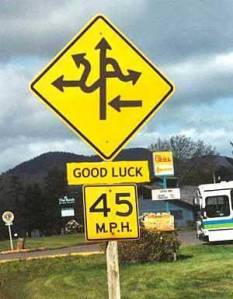 Many of us weigh the decisions we make against the consequences that may happen. For instance, a financially desperate person might say, “I need money, but if I rob a bank, I’ll surely get caught.” A person with a more developed sense of morality may instead reason, “I need money, but that money is not mine to take.” Either way, some kind of assessment of right and wrong takes place, or at the very least pragmatics, which is the determined usefulness, or useful outcome of a particular action (like robbing a bank.)
Many of us weigh the decisions we make against the consequences that may happen. For instance, a financially desperate person might say, “I need money, but if I rob a bank, I’ll surely get caught.” A person with a more developed sense of morality may instead reason, “I need money, but that money is not mine to take.” Either way, some kind of assessment of right and wrong takes place, or at the very least pragmatics, which is the determined usefulness, or useful outcome of a particular action (like robbing a bank.)
Pragmatics gets down into the everyday choices, and can be the default setting for our choices. It’s like a common denominator. But really it’s not very good ethics that drives those kinds of decisions. Instead it is only the perceived consequences at the wheel, steering the choice. While it may seem practical to decide something based on whether it will help or hurt, or be useful or not useful, there is a glaring flaw in this method.
What is it? Simply put, we can never truly know the actual consequences of our choices, or their ramifications which lay in the future. What may seem helpful, can hurt many, instead of help. Or, sometimes certain people are helped, while others suffer greatly. History is quite full of these sorts of examples, and we continue to repeat them.
We can abandon a foundation of pragmatics, (the consequential, illogical, ad hoc reasoning method of decision making) by choosing from an altogether better starting point. God. It sounds so simple, but I will not say it is. But, what I refer to is the ultimate ideal, outside ourself–perfection. (Think: Socrates’ model)
The reference of God “himself,” and the nature and Standard of our best choices actually resides in and with God. The best values, the best and most perfect way–that is the way of God. More than that, it is how reality is grounded. God is the ultimate reality. Yes, we won’t measure up. In about two seconds we won’t, to be honest. However, this is not the reason to head for pragmatics, and assume The Good is not possible, a worthy choice, or viable for a standard–or at least the aim, of our own choices. It is the goal of each of us to decide to not choose for ourselves, or for the consequence alone, but for what is the ultimate Good.
Weigh-in with your take, or insights. I realize this particular post is a lofty one. Yes, and idealistic!
ALSO-Please help me spread the word about this website. I would love to have more regular readers. Many thanks to those who’ve read today!
